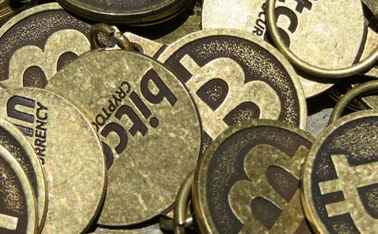
Euro should not covet reserve role

The eurozone would suffer from the euro becoming a global reserve currency, panellists at a CentralBanking.com web seminar said on Tuesday.
Daniel Gros, the director of the Centre for European Policy Studies, a Brussels-based think tank, and Ken Wattret, the chief eurozone economist at BNP Paribas, both asserted that the euro becoming a reserve currency would hinder any nascent recovery in the region.
Such a move would, the economists argued, dampen export competitiveness by sparking an appreciation of the euro.
Wattret admitted that making the euro a reserve currency "may help from a global perspective" by challenging the dollar's hegemony, but said in the current climate "national interests start to dominate".
Tim Young, a former trading manager at the Bank of England's foreign exchange division disagreed that becoming a reserve currency would hinder the euro area, citing the US's so-called "exorbitant privilege" with the dollar. "If people are offering you that, if people want to use your currency as a reserve currency, then you should take them up on that offer," he said.
The financial crisis has seen the dollar's role as the dominant currency called into question with the governor of the People's Bank of China, the largest reserve holder, thinking aloud on the potential of the special drawing right to play a more prominent role in the international monetary system.
Since its launch in 1999, the euro has built on the legacy of the deutschmark as a reserve currency, and, according to IMF figures, now enjoys a greater share of reserves than the legacy currencies of the euro area did combined. However, despite an increase in use it has not yet mounted a serious challenge to the greenback.
A recent survey carried out by Central Banking Publications found that reserve managers from central banks felt that the standing of the euro had been enhanced as a result of the crisis whereas that of the dollar had fallen.
The discussion was part of a broader debate on official-sector balance sheets.
"Little alternative"
Both Gros and Wattret acknowledged that countries with large holdings of dollar-denominated assets should be concerned, saying: "If I was a large investor in US debt I would be worried." However, he believed there was little alternative to holding such assets, arguing that taking the view of Germany in the 1960s - which made a conscious decision to accept some loss on its reserves holdings - could be best.
Young differentiated between the types of losses faced"If China faces losses on its reserves due to normal currency fluctuations in the foreign-exchange market, then that is an inherent risk of holding foreign exchange reserves," Young said. "If China faces losses because the Fed reneges on its commitment to low inflation, then the Chinese do have cause to complain."
Split on shrinkage
Wattret pushed for Beijing to take measures to reduce its surplus. "There is an underlying imbalance in the global economy and China will need to appreciate its currency if we have any chance of rebalancing the economy," he said.
However, Young disagreed. "Considering the usual yardsticks of reserves adequacy - such as import cover, debt cover and money supply - the size of China's reserves is not crazy when compared the inadequate size of America's reserves," Young said, adding that the US should have invested China's savings in public-sector projects, a strategy that has been successful in China and Germany.
Wattret queried Germany's dependence on export growth, but admitted that policies to boost demand by the German government had been proven unsuccessful. Gros noted, however, that economies reliant on exports would be hit by the slowdown in global demand.
Fed's fight
The panellists noted that the Fed's outright purchases of mortgage-backed securities strayed into quasi-fiscal territory, with Young saying that the central bank should have ensured it would be compensated by the government from any losses on its purchases before undertaking them. "The problem is indemnity, the Bank of England had indemnity; the Fed has not," he said.
However, all agreed that the crisis had necessitated such drastic action. "The Fed had to react quickly to the crisis and there was no time to enter discussions over what the Fed could and could not buy," he said. "In some situations you need to be creative that's what the Fed did."
More broadly, all three also supported actions by central banks around the globe to extend their collateral requirements. "Central banks had no choice," Gros said. "Ex-ante it might be wrong to take on so much credit risk. But they had to do so."
Click here to view the web seminar
Only users who have a paid subscription or are part of a corporate subscription are able to print or copy content.
To access these options, along with all other subscription benefits, please contact info@centralbanking.com or view our subscription options here: http://subscriptions.centralbanking.com/subscribe
You are currently unable to print this content. Please contact info@centralbanking.com to find out more.
You are currently unable to copy this content. Please contact info@centralbanking.com to find out more.
Copyright Infopro Digital Limited. All rights reserved.
As outlined in our terms and conditions, https://www.infopro-digital.com/terms-and-conditions/subscriptions/ (point 2.4), printing is limited to a single copy.
If you would like to purchase additional rights please email info@centralbanking.com
Copyright Infopro Digital Limited. All rights reserved.
You may share this content using our article tools. As outlined in our terms and conditions, https://www.infopro-digital.com/terms-and-conditions/subscriptions/ (clause 2.4), an Authorised User may only make one copy of the materials for their own personal use. You must also comply with the restrictions in clause 2.5.
If you would like to purchase additional rights please email info@centralbanking.com







